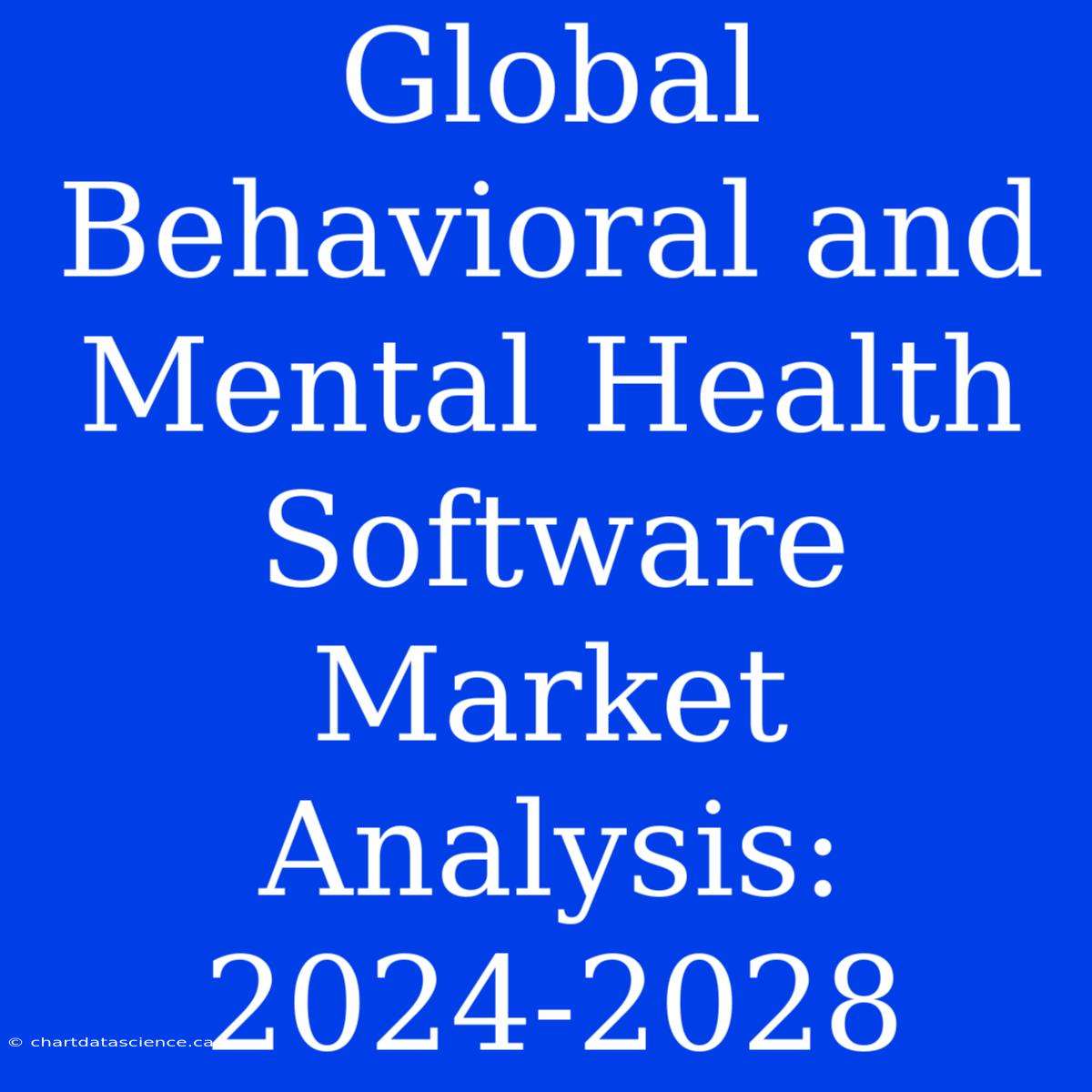Global Behavioral and Mental Health Software Market Analysis: 2024-2028
The global behavioral and mental health software market is booming, driven by a growing awareness of mental health issues and a push for more accessible and effective treatment options. This market, encompassing software solutions for managing patient care, providing therapy, and analyzing data, is expected to experience significant growth in the coming years.
The Rise of Digital Mental Health
The rise of telehealth and digital health platforms has revolutionized the way mental health services are delivered. Gone are the days of waiting weeks for an appointment with a therapist. Now, individuals can connect with mental health professionals remotely, access online therapy programs, and track their mental well-being with the help of apps and software. This accessibility and convenience are key drivers behind the market's expansion.
Market Segmentation: A Look at the Key Players
The global behavioral and mental health software market is segmented based on various factors, including:
- Software Type: This includes solutions for electronic health records (EHRs), patient engagement, mental health assessments, virtual therapy, and data analytics.
- Deployment Model: The market can be segmented based on cloud-based, on-premise, and hybrid deployment models.
- End-User: This includes hospitals, clinics, individual therapists, and organizations providing mental health services.
Key Trends Shaping the Future
Several significant trends are shaping the future of the behavioral and mental health software market:
- Integration with Wearables: Integrating mental health software with wearable devices that track physiological data, like heart rate and sleep patterns, allows for more comprehensive patient monitoring and personalized interventions.
- Artificial Intelligence (AI): AI-powered chatbots and virtual assistants are being incorporated into mental health software to provide personalized support and automated therapy sessions.
- Focus on Data Privacy and Security: With sensitive patient data being stored and analyzed, there is a growing emphasis on robust data privacy and security measures to protect patient information.
- Expansion of Telehealth Services: The COVID-19 pandemic accelerated the adoption of telehealth, and this trend is expected to continue. The demand for remote mental health services will drive further development in the software market.
The Growth Trajectory: A Promising Outlook
The global behavioral and mental health software market is projected to grow at a significant CAGR (Compound Annual Growth Rate) during the forecast period (2024-2028). This growth can be attributed to several factors:
- Increased Mental Health Awareness: There's a growing understanding of the importance of mental health, leading to increased demand for treatment and care.
- Rising Prevalence of Mental Health Conditions: The global burden of mental health disorders is increasing, leading to a higher need for effective treatment and management tools.
- Government Initiatives and Funding: Many governments worldwide are investing in mental health initiatives, promoting the development and adoption of digital solutions.
Challenges and Opportunities
Despite the promising growth outlook, the market faces several challenges:
- Data Privacy and Security Concerns: Ensuring the secure handling of sensitive patient data remains a key challenge.
- Integration with Existing Systems: Integrating new software solutions with existing healthcare systems can be complex and time-consuming.
- Lack of Standardization: The lack of standardized data formats and interoperability can hinder the seamless exchange of patient information across different systems.
However, these challenges also present opportunities:
- Developing Robust Security Measures: Companies can focus on developing and implementing robust security protocols to address data privacy concerns.
- Creating Interoperable Solutions: Developing solutions that can easily integrate with existing healthcare systems can create a competitive advantage.
- Promoting Industry Standardization: Collaboration and standardization efforts can help create a more unified and interoperable market.
Conclusion: A Bright Future for Mental Health Technology
The global behavioral and mental health software market is poised for significant growth in the coming years. The increasing adoption of digital health solutions, coupled with government support and a growing understanding of mental health, creates a promising future for this sector. By addressing challenges and leveraging emerging trends, companies in this market can contribute to improving mental health outcomes worldwide.

